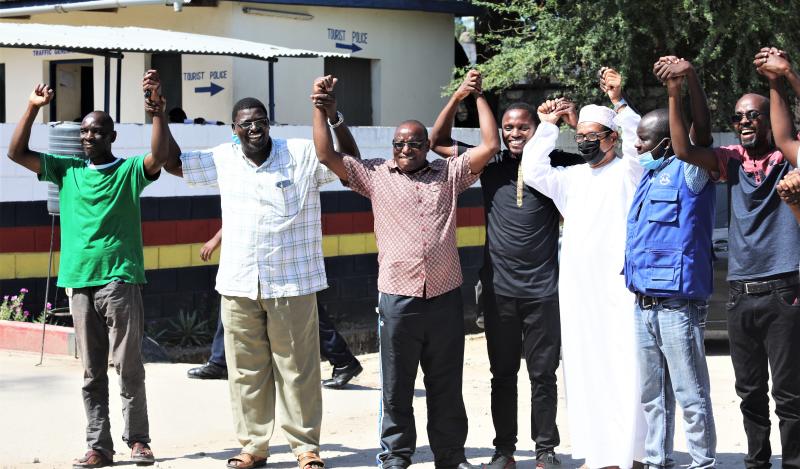
Civil society members in solidarity with colleagues from the International Center for Policy and Conflict (ICPC) outside Mtwapa Police Station in Kilifi County on Thursday November 18, 2021. [Kelvin Karani, Standard]
Let us say it again. The civil society – the religious, media and all non-governmental organisations – has a critical role in electoral processes. From voter registration all the way to election result outcomes, the civil society is a major actor. As things stand, the civil society has not pitched for any agenda that those seeking elective offices should seriously consider should they come to power. At the national level, there is no evident voice pushing for a particular agenda.